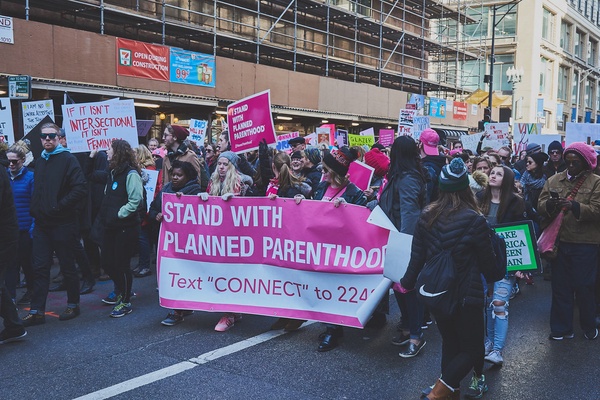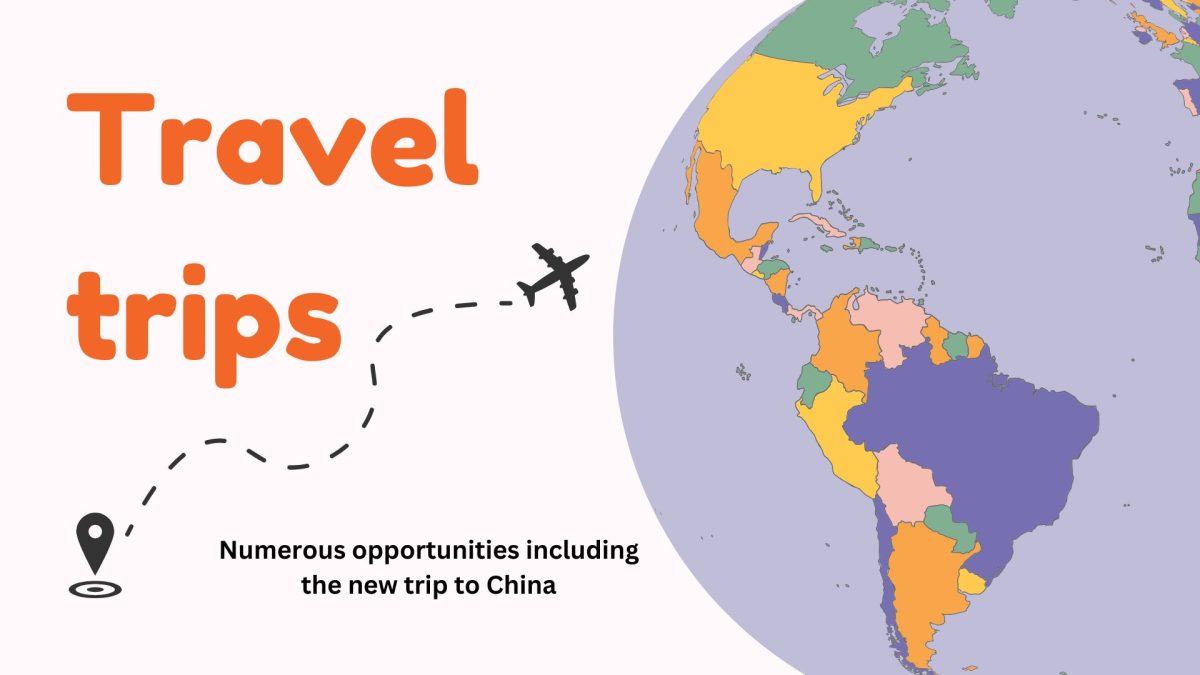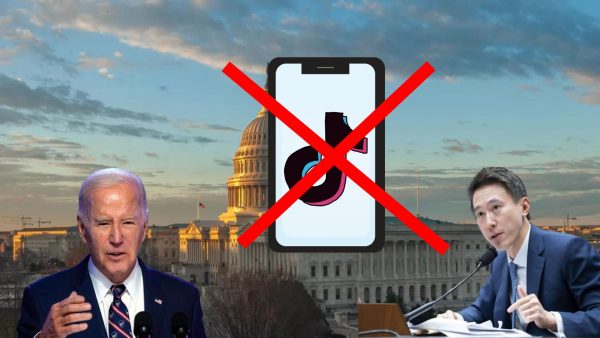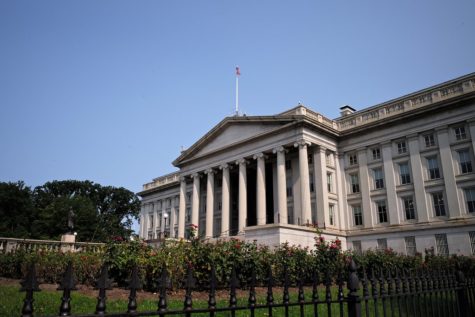Roe v. Wade: Past and Present
The history of Roe v. Wade and what will happen if the Supreme Court overturns the law.

Photo courtesy of Creative Commons
Protester’s gathered at the 2018 Chicago women’s march in support of women’s reproductive rights.
The 1970’s were famous for bell bottoms and rock-n-roll. However, it was also an era that was defined by it’s historical and political disputes regarding the fight for women’s rights, gay rights, and environmental preservation. It was a time of economic struggle and political division spanning from issues like the Watergate Scandal to the Vietnam War.
In 1970, a woman, Norma McCorvey, who went by the fictional name, Jane Roe (for anonymous identity protection), filed a lawsuit against Henry Wade, the district attorney for Dallas County, Texas, where she lived. Her lawsuit challenged a state law that made abortion illegal with the exception of a doctor’s medical orders to save a woman’s life. She raised her question to the Supreme Court asking: does the Constitution provide the right to terminate a woman’s pregnancy from an abortion?
Prior to this time, it was illegal to get an abortion in the U.S. unless medically permitted, which was only allowed in rare cases where the mother of the unborn child was or would be in extreme harm. However, even with this law in place, some women were able to find alternatives to its limitations. Between the years of 1950 and 1960, between 200,000 and 1.2 million illgeal abortions took place in the U.S., according to the Guttmacher Institute. Abortions were accessed by women who had enough money to pay-off doctors to perform the procedure and keep quiet, traveling to other countries to be treated, and “back-alley” or self-induced abortions took place.
The strict regulations of womens’ bodily autonomy led McCorvey and her lawyers to confront the Supreme Court and to propose a review of the rights of the individual in the Constitution.
Before reaching the Supreme Court, in June of 1970, a Texas district court ruled that the state’s abortion ban was illegal and unconstitutional, as it violated the private rights of the individual. Wade argued this decision and declared that he would continue to prosecute any doctor who performed an abortion without set medical reasoning.
On January 22, 1973, the Supreme Court case of Roe v. Wade was decided and put into action. The Texas law of illegal abortions was terminated as the Court believed it violated the Constitution’s 14th amendment, meaning that they believed it was a woman’s right and liberty to have an abortion, as was implied in their right to privacy. This meant that the government was not allowed excessive restriction or judgement as it was a written, personal right.
The lingering questions people are asking are, why are we debating this again today and what happens when the Supreme Court decides to overturn a law that has been in place for almost 50 years?
A Mississppi law is being heard by the Supreme Court that bans abortions after 15 weeks, challenging the Roe v. Wade decision. After 1992’s case of Planned Parenthood v. Casey, the Supreme Court ruled a nation wide law that legalized abortion in any and every situation with the consent of the patient.
“Abortion is a human right and it’s healthcare. To deny people abortions is inherently violent,” Julia Hernandez, junior, said. Hernandez is a member of the feminist club and a supporter of women’s rights. “When you look at it on a systematic level, forcing people to have babies they’re not ready for, means potentially financially crippling millions of families.”
While Hernandez supports pro-choice values, prominent political figures are largely opposed and support pro-life choices. Ted Cruz, the Senator of Texas, is one of the few voices largely involved in the Supreme Court’s influence in the attempt to overturn the current Mississsppi law that will influence several other heavily conservative states. On his own website, he says: “I will continue to stand up for the unborn and newborn babies who feel pain in the womb and are denied a chance at life.” Cruz is a “leading defender for life” and is an original co-sponsor of the Born-Alive Abortion Survivors Protection Act.
The battle between both pro-choice and pro-life platforms will continue to grow as we fall closer to the Supreme Court’s final decision in June. The period of time between now and June’s final result will include mass media coverage, judicial speculation and continued party support on both the pro-life and pro-choice platforms.
Your donation will support the student journalists of West Linn High School. Your contribution will allow us to continue to produce quality content by purchasing equipment, software, and continuing to host our website on School Newspapers Online (SNO).

Sydney McCrone, senior, is the Social Media editor for wlhsNOW.com, and has been channeling her love of writing since her freshman year. When she is...


























![Game, set, and match. Corbin Atchley, sophomore, high fives Sanam Sidhu, freshman, after a rally with other club members. “I just joined [the club],” Sidhu said. “[I heard about it] on Instagram, they always post about it, I’ve been wanting to come. My parents used to play [net sports] too and they taught us, and then I learned from my brother.”](https://wlhsnow.com/wp-content/uploads/2024/03/MG_7715-2-1200x800.jpg)





![The teams prepare to start another play with just a few minutes left in the first half. The Lions were in the lead at halftime with a score of 27-0. At half time, the team went back to the locker rooms. “[We ate] orange slices,” Malos said. “[Then] our team came out and got the win.”](https://wlhsnow.com/wp-content/uploads/2023/10/IMG_2385-1200x800.jpg)





![At the bottom of the third inning, the Lions are still scoreless. Rowe stands at home plate, preparing to bat, while Vandenbrink stands off to the side as the next batter up. Despite having the bases loaded, the team was unable to score any runs. “It’s just the beginning of the season. We’re just going to be playing out best by June, [and] that’s where champions are,” Rowe said.](https://wlhsnow.com/wp-content/uploads/2024/03/IMG_3077-1200x900.jpg)















































































